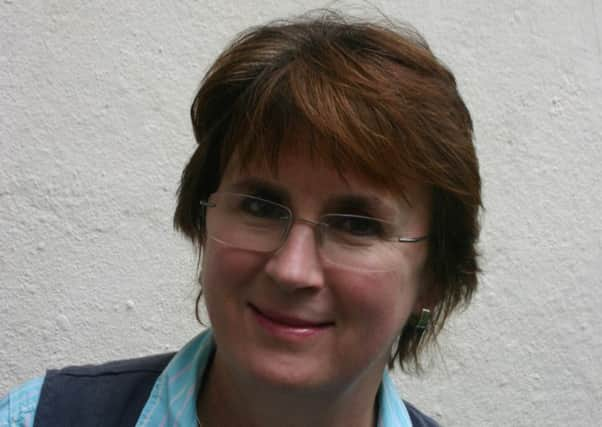Jean Calder: Epilepsy is no barrier to work


I tell them I bought it through the Amnesty catalogue and they nod approvingly. However, a couple of times, people have asked who designed it. When I have said it was produced by a client of an epilepsy charity (her name is Margaret Mace, but at that stage I did not know it), the reaction was very different. One person stepped backwards, evidently mortified, and asked nothing else. Another said “Yes I can see it’s..” then reddened and stuttered to a halt. I suspect she was about to say she could see it was a bit wobbly round the edges.
It troubled me that when they discovered this remarkable designer had epilepsy, their curiosity ceased - or was overwhelmed by embarrassment. They ‘saw’ the brooch differently. It is a tragic testimony to the stigma still attached to the disease. Yet it’s a common condition and has been experienced by many remarkable people, including many great artists and writers, from Dostoyevsky to Van Gogh. Some historians believe da Vinci and Michelangelo may also have been sufferers. In ancient times it was called the ‘sacred disease’ because people believed it was caused by the gods.
Advertisement
Hide AdAdvertisement
Hide AdThe Surrey-based Meath Epilepsy charity, which produces the brooch, offers services for adults with severe epilepsy, learning and physical difficulties. One of its central aims is to dispel the stigma associated with epilepsy. It has done this by setting up successful social enterprises, one of which is ARTHOUSE Meath, which produces many beautiful artefacts for sale. The Meath website states that “with a bit of help, people living with epilepsy and associated disabilities can reach their full potential, and using their creativity and given skills, can succeed alongside their peers.”
Most people living with epilepsy are not as severely affected as clients of the Meath charity. Around two thirds are able to control their seizures by medication. There are limits to what they can do, but generally they are able to get on with their lives, often avoiding discrimination by hiding their epilepsy from colleagues and friends. However, a third do not have this option. Doctors cannot find a way to control their seizures and so they have to find a way to live with them - and deal with other people’s prejudice and fear.
It is estimated that more than 500,000 people in the UK have epilepsy, around 1 in a 100. It is likely that nearly 2,700 live in our city. Yet too often epilepsy and related neurological illness are treated as a shameful secret. There is only one MP who has had the courage to acknowledge his condition, the remarkably brave Paul Maynard - and shamefully he was mocked for it by fellow MPs.
Most people with epilepsy are able and eager to work. Yet many have difficulty finding employment, especially those who may be well-qualified, but due to exhaustion are unable to work full-time. Many employers are confident in their ‘inclusive’ employment policies, but in reality are inflexible in their practice and avoid employing people with neurological problems. Some may do this for reasons of prejudice, have an atavistic fear of ‘possession’ or, worst of all, want ‘attractive’ team members, not people they fear may fall, shake or dribble. However, I suspect a far greater number are simply nervous and do not know what to do to support an employee with epilepsy. Tragically, they may fail to offer employment to skilled individuals or leave existing employees unsupported, isolated and often un-promoted.
Advertisement
Hide AdAdvertisement
Hide AdThe Brighton Chamber of Commerce has recently thrown its weight behind Recruit Ability, an initiative to match employers and companies to disabled potential employees. I would urge employers to consider the needs of people with epilepsy and the rich seam of experience and skill they offer.
As a first step, employers and people living with epilepsy could do no better than seek advice on the website of Epilepsy Action at epilepsy.org.uk.
or on the free Helpline number 0808 800 5050.
Jean Calder is a Brighton activist.